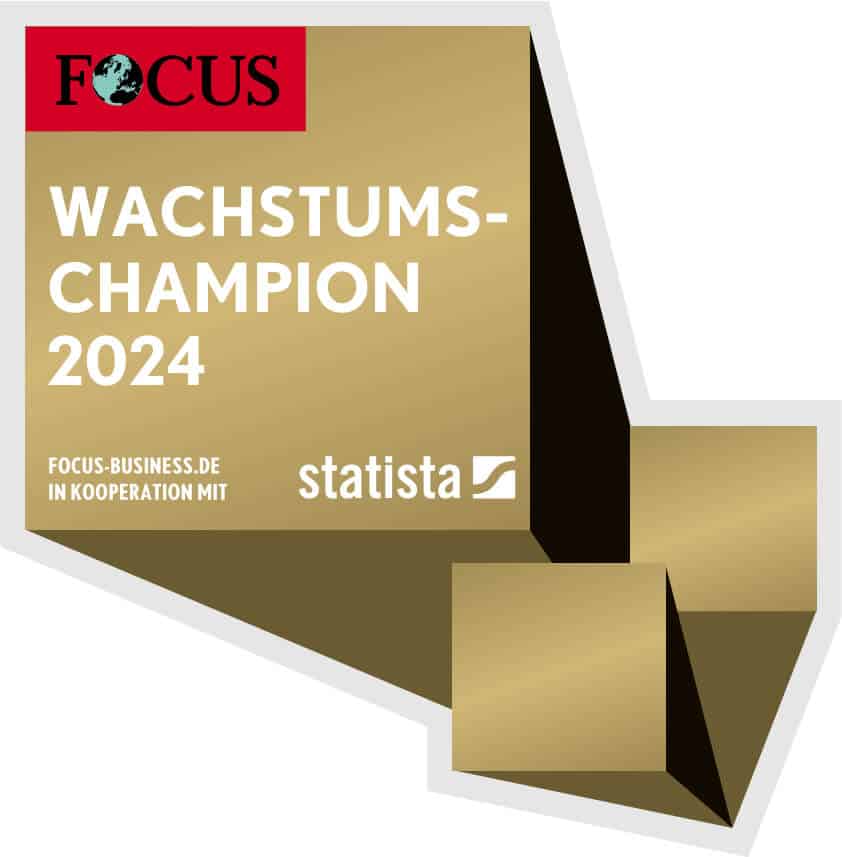Personal branding is also a worthwhile strategy for consultants in order to stand out from the competition, attract and retain clients. As your personality plays an important role in personal branding alongside your content as an expert, in this article I will discuss how you can clearly position yourself as a personality and as an expert: Use storytelling to convey to your potential customers what makes you stand out as a person, as a brand and as an expert, and what values guide your actions. Over the next few weeks, I will be highlighting further aspects in a series on personal branding and providing you with instructions for practical implementation.
Why personal branding?
Personal branding allows you to build a reputation as an expert in your field. This expert status helps you to better address your target group, position yourself more clearly in the market with your offer and thus ensure that customers come to you - and you don't have to win them over through time-consuming cold calling with a low success rate. Your expert status also allows you to charge higher prices. This also reduces cost pressure for you. I have already explained why personal branding is worthwhile for consultants in the article Stand out from the crowd with personal branding shown.
Storytelling: your personality in a story
Even if we supposedly act rationally - our Emotions have us firmly in their grip. Consultants must keep this in mind when communicating with clients. Emotions also play a central role when it comes to positioning yourself on the market and communicating your own expert status for certain topics. Storytelling is a suitable method for communicating your own skills and expertise as well as your own personality and values to potential customers in an authentic and appealing way. Here are all the advantages at a glance:
- Storytelling conveys your own motivation for the task emotionally.
- Storytelling shows authentic the personality.
- Good stories are remembered.
- The personal story is suitable for communicating skills coherently and in the context of an overarching value orientation.
What role does personality actually play?
You might think that when it comes to consultants and other experts, competence and qualifications for a particular topic are the most important factors when it comes to selection by the customer. These points certainly play a decisive role. However, likeability and antipathy, sharing values and an authentic personality play an equally important role.
The reason for this: When we make decisions, the Stone Age man in us comes to light. The oldest part of our brain in terms of evolutionary history, the limbic system, controls our (purchasing) decisions. Emotions are responsible for 97 percent of whether we decide for or against a person. You can appeal to these emotional factors with a good story. Through storytelling you can
- Convey your motivation.
- demonstrate your career in a coherent manner.
- Make your value orientation clear.
- show what makes you unique as a person and consultant.
It is crucial that you remain true to yourself. Don't try to fake character traits that you don't have just because you think they will "go down well". Sooner or later, your customers will realize that you are pretending and you will lose credibility. What's more, constant acting won't make you happy either and you won't be able to do your job with motivation or competence. Don't be afraid to offend and polarize. It is not those who please everyone who are remembered, but those who have a distinctive profile.
How good storytelling works
The basis: your personal path
The basis for your story, with which you position yourself as a consultant, is your career. To do this, list all the important professional stages you have passed through in your career. In addition, go through your private life: Are there any turning points that also resulted in professional reorientation? In this way, you can convey your skills and qualifications in an appealing and interesting way on the one hand and present your personal motivation in a coherent manner on the other. This will enable you to address potential customers on both the rational and the all-important emotional level.
Wrapped up in a hero's journey
Even if you are not a born writer, you can use a few simple tricks to turn your career into an authentic story that reflects your motivation and values and gives (potential) customers an insight into your personality.
The hero's journey is the pattern that many successful films and novels follow. This pattern can also be applied to your personal story. The main character - in this case you - is in a conflict or has a challenge to overcome. On his way to his goal, he experiences ups and downs and has to pass tests. In a transformational process, he finally resolves his conflict and emerges stronger because he has learned from what he has experienced.
Based on this scheme, your value orientations can also be conclusively justified from your experiences and you can show how you realize them in your work.
(Source cover image: © ra2 Studio| Fotolia.com)

